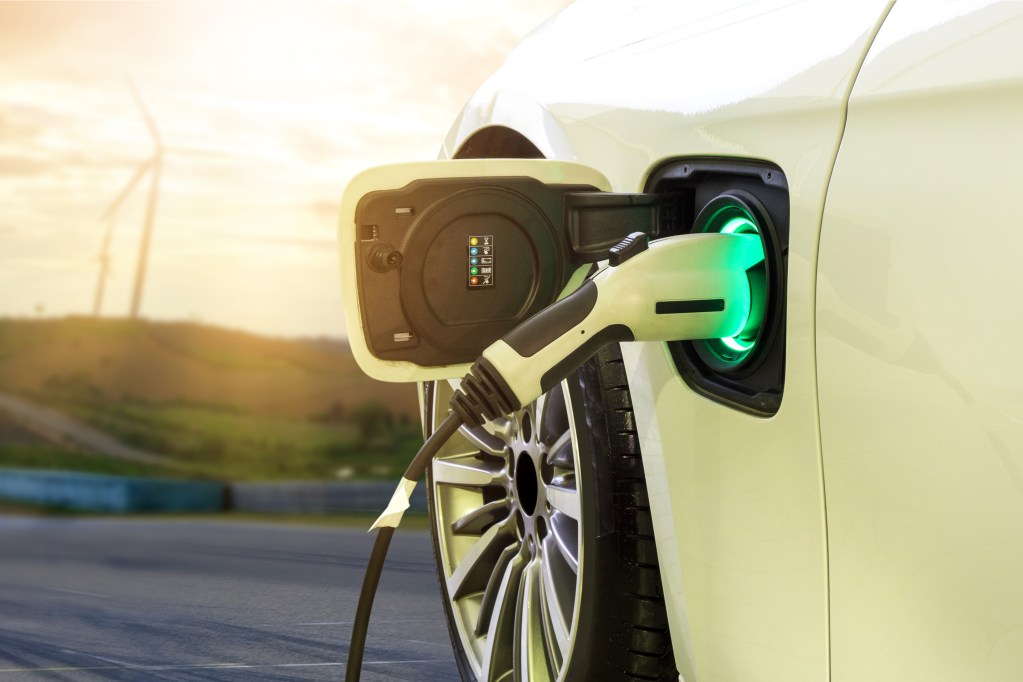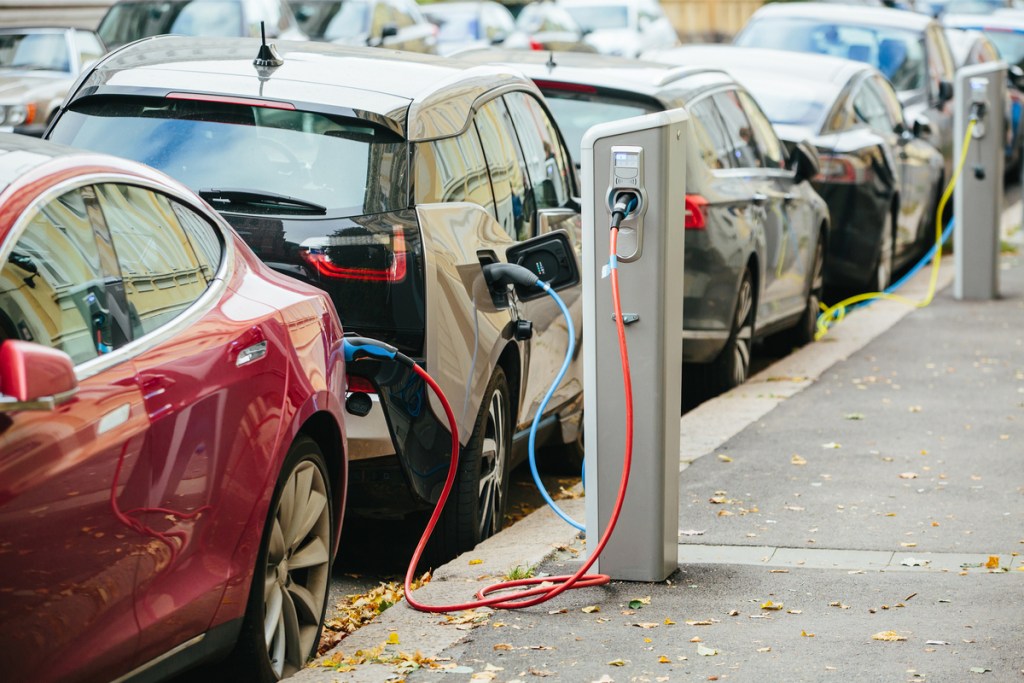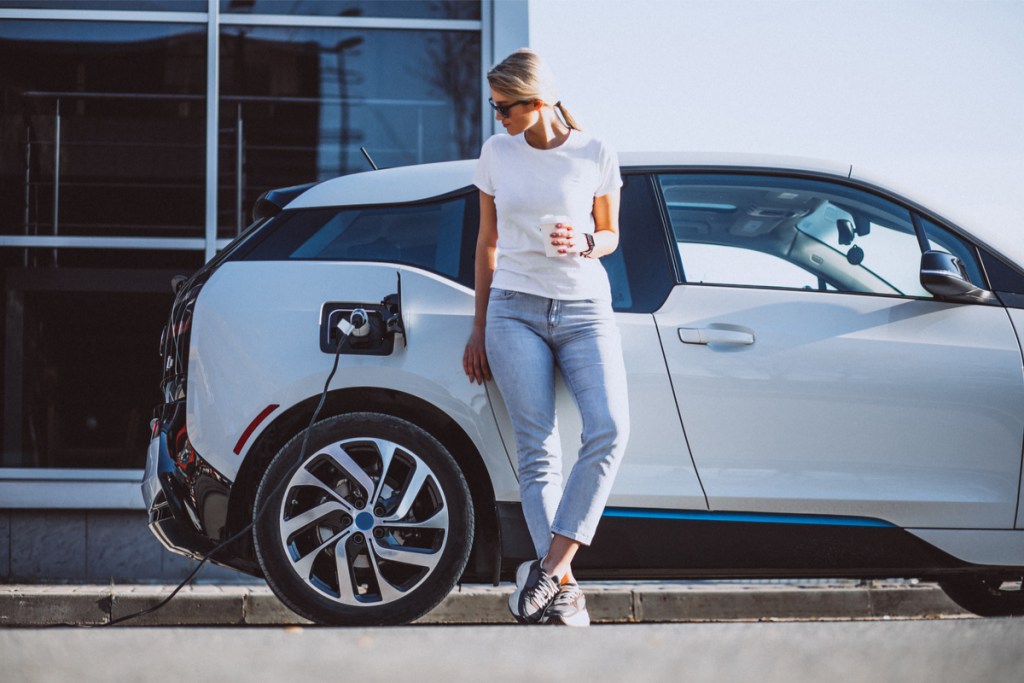If you want to go green, an electric vehicle is an industrious way to lessen your carbon footprint. An electric or EV vehicle doesn’t use a traditional combustible engine relying on fossil fuels. Instead, it uses electricity. While an electric vehicle is an environmentally friendly option in cities where charging stations are plentiful, what about when you and the family head out on the highway for a road trip? Range anxiety is actually a thing, and what about other features of electric vehicles like motion-sickness frequency that don’t make EVs family-friendly for long road trips?
It’s true an electric vehicle has environmental perks as well as taking away the pain at the gas pumps. With summer just around the corner, the national average for a tank of regular gas is hovering at almost $5 a gallon. A tank or premium is over $5 and let’s not talk about diesel. As gas prices continue to skyrocket, electric cars certainly look more appealing, but before you think about packing an EV for a cross-country road trip or a highway adventure with the family, be sure to take these things into consideration.

Range anxiety
If you’ve ever run out of gas, you understand what a horrible feeling it is to be stuck in the middle of nowhere without a gas station in sight. The difference between a conventional vehicle and an EV is that getting gas for your stranded car is actually easier than finding a charging station. Range anxiety is the term coined for EV owners when they are anxious their battery life is about to die and the nearest charging station is miles away. Combating range anxiety is definitely something to consider if you plan on taking frequent road trips to explore national parks or far away destinations unknown.
Charging stations may be plentiful in urban areas, but not so much when you are traveling through or headed to remote spots. Of course, there are apps to help you locate the nearest charging stations on your route. Sure, AAA will eventually find you and tow you to a charging station. Some electric car companies have a service for this, but do you want to be driving through unfamiliar areas with the kiddos in tow, worrying if the car will make it to the next charging station?
How long does a charge last?
Electric cars have improved since EVs first drove onto the highway, but the fact remains a charge doesn’t go as far as a tank of gas. According to Car and Driver, electric cars can drive 60 to 100 miles when fully charged up. Depending on the vehicle, some fuel-powered cars get a lot more miles per gallon. Of course, you’re not paying to charge up on electricity as you are for a gallon of gas.

Recharging isn’t quick
When you need gas, you pull into the station, fill up, and drive out. It’s usually quick and painless, with perhaps a short line every now and then. Charging up an electric car is not a quick in-and-out procedure. Charging up takes time. Depending on the model, charging can take four to 20 hours.
When you’re on the road with the family and need to stop at a charging station, finding things to keep the kids amused while the car is charging will certainly become an issue. Lengthy recharging sessions will also wreak havoc with your traveling schedule. Sure, getting there is half the fun of a road trip, but you don’t want to spend the majority of your vacation driving to and from your destination because of long stops to charge up.
Motion sickness
A downside to electric vehicles and self-driving cars has been a problem with motion sickness, especially for passengers. It seems as though the acceleration and braking in an electric car aren’t quite as smooth as in conventional cars. While this may not be noticeable to the driver, it is definitely an issue for many passengers. Anyone who has had motion sickness on an extended car ride knows how miserable the feeling is. If you have children, you understand how awful it is when kids get sick and throw up in the car.
The problem with motion sickness and electric cars is you won’t know how bad it is for family members with car sickness issues until after the purchase. Traveling on a family road trip is not the time you want to deal with the kids struggling with motion sickness.
Price
If you’ve been in the market for an electric car, you know the sticker shock can be a bit frightening. Electric cars are environmentally friendly and a great way to go green, but they may impact the family budget more than purchasing a gas-powered automobile. While an electric car will save on those gas bills, you have to make sure the overall cost of purchasing the vehicle is something the family budget can afford in the long run.

Pros and cons
There’s no denying electric cars are great for the environment. EVs, while expensive to purchase, may be cheaper in the long run because the vehicles require less maintenance and aren’t bound by fluctuating gas prices. However, the drawbacks, including range anxiety, price, recharging length, and high chances of motion sickness, may outweigh the pluses.
Electric cars are great for urban driving where charging options are plentiful. If you and your family love to hit the highway for long road trips out in the great wide open, an electric car — while environmentally friendly — might not be the best option. Part of the fun of a road trip is the travel itself. Range anxiety and motion sickness are two major drawbacks to packing up an electric car for a road trip. Before purchasing an electric car to be used as the family’s main vehicle, it’s important to take into consideration all the pluses and minuses.



